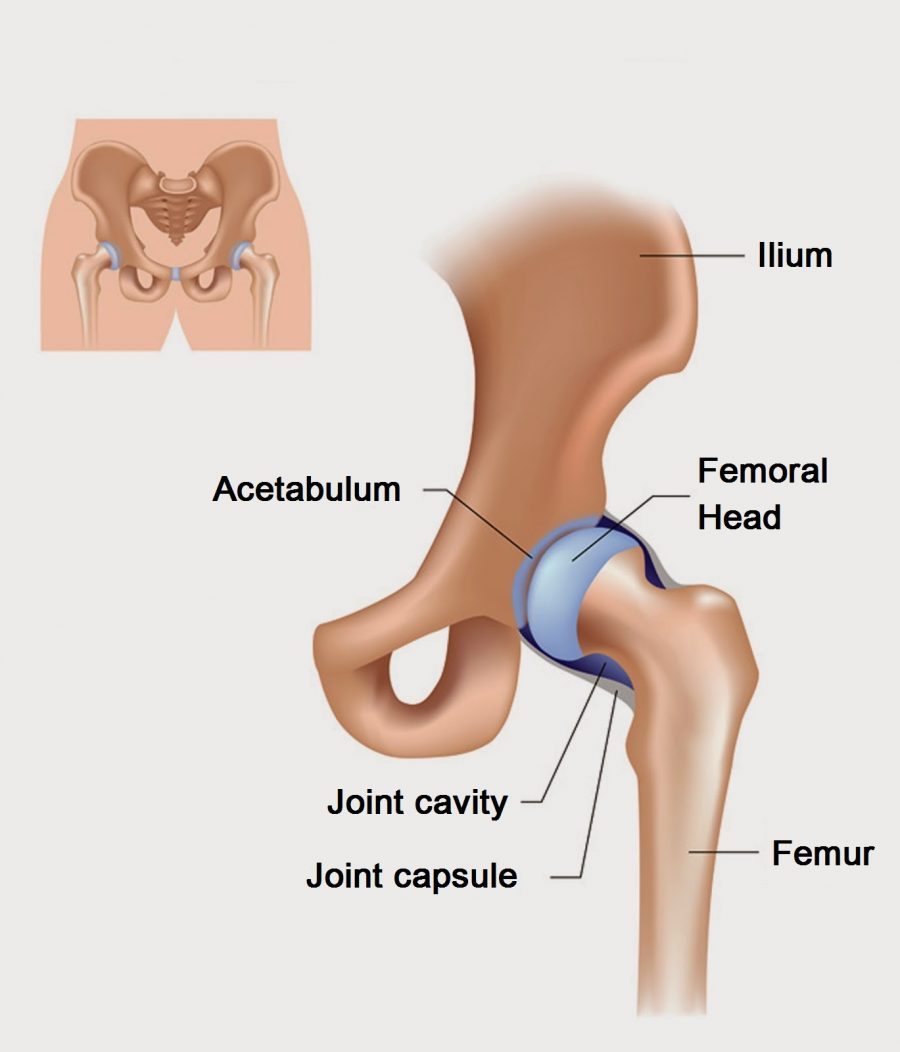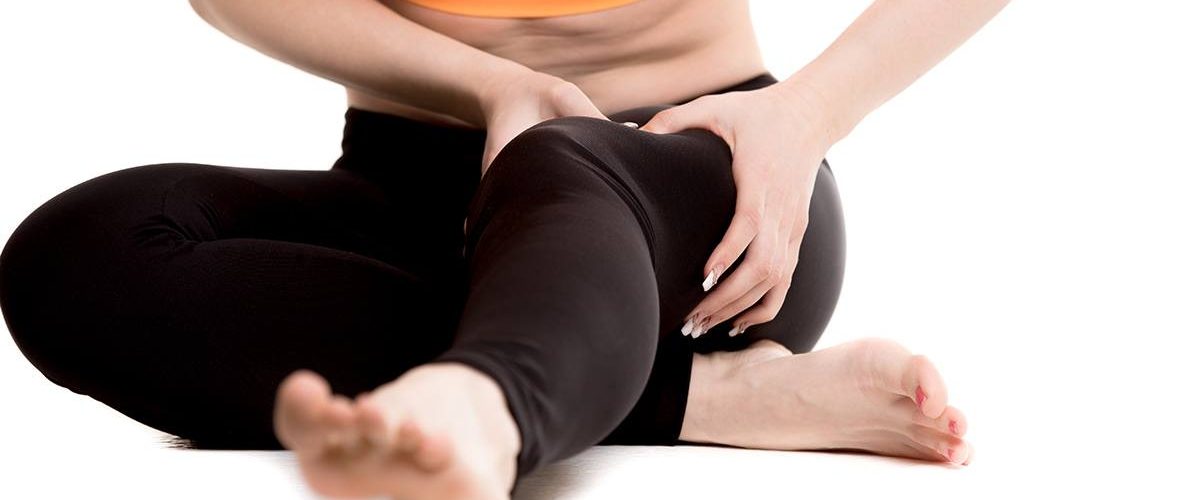Hip pain has no age limit. Young and older people experience hip pain for a variety of reasons that include injury, arthritis, bursitis and many more. The pain can be of different intensity, from mild to severe, but any pain can make walking, sitting and sleeping difficult. The following article is the short summary of the most common causes of hip pain.
Construction of the Hip
Most people experience hip pain at some point in their life. The pain can be temporary when it is the result of a muscle strain or a mild injury. However, it can also be severe or chronic, sending a warning that something more serious is occurring.
The hip joint is where the ball at the top of the femur or thigh bones meets the socket in the pelvis bone. The socket is called the acetabulum. The acetabulum and the ball of the femur bone are covered with cartilage.

The joint lining is called the synovium , and it is responsible for producing a lubricating fluid and keeping the cartilage healthy by supplying nutrients. Holding the hip bones together and enabling a range of movement are ligaments, tendons and muscles. To allow the muscles and tendons to glide smoothly within the joint are bursae, small fluid-filled sacs. The sciatic nerve runs behind the hip joint, while major arteries and veins run in front.
Where Hip Pain Occurs
With such a complicated structure, it is not surprising that hip pain is a common occurrence or that there are many causes of hip pain. The ball-and-socket construction is meant to withstand a lot of use as a major joint used for body movement and positioning, but like most joints, it is subject to broken bones, injury, disease and wear-and-tear.
Hip pain is felt in various ways:
- Pain felt on the groin or hip – indicates a problem in the hip joint.
- Pain felt on the hip’s outside – indicates a problem with soft tissues around the joint.
- Pain felt in the outer buttock or upper thigh – also indicates a problem with soft tissues around the joint.
The location of the pain can help a physician pinpoint the cause of the pain.
When Pain Occurs
Pain can occur during various activities and for obvious or unobvious reasons. There may be:
- Hip pain when walking
- Hip pain after walking
- Hip pain while sleeping on the hip
- Sudden hip pain with injury
- Sudden hip pain without injury

Sometimes there are outside signs of the medial issue causing the pain. For example, there may be swelling in the hip area or the area around the hip feels warm and tender.
What Causes Hip Pain
One of the challenges in identifying the source of hip pain is that there are many causes. For example, hip pain when walking may be due to bursitis, arthritis or tendonitis. Hip pain after a session of walking may be due to repetitive stress from overusing the hip or from a tendon or muscle strain.
Following are the common causes of hip pain:
- Arthritis – arthritis causes hip joint inflammation and cartilage breakdown with pain felt inside the hip but frequently accompanied by tenderness or swelling outside the hip too.

- Core muscle injury – pain is felt in the groin area due to a muscle tear or damage to soft tissues.
- Labral tear – the cartilage surrounding the hip socket and helping to hold the thighbone in place is torn and causes pain in the groin or the hip.
- Bursitis – pain is felt on the outside of the hip, buttock or thigh and is due to inflammation of the fluid sacs (bursae) in the joint.
- Tendonitis – muscles around the hip are tender due to overuse or strain of tendons that attach muscles to the bone.

- Hip sprain – ligaments connecting bones in the hip are torn or stretched, frequently causing swelling, tenderness and pain.
- Fractured pelvic bone – hips and pelvic pain can be extreme when the pelvis is fractured.
- Hip dislocation – usually the result of a traumatic injury, the femur is forced out of the hip bone socket, causing pain inside and outside the hip.
- Medical issues with systems in the pelvic area – sometimes hips and pelvic pain is actually related to other medical issues, like urological or gastrointestinal problems, and not to a condition in the hip.
- Cancer – sometimes hip pain is caused by a bone tumor or other bone conditions and not necessarily in the hip bone.
- Lower spine conditions – a problem with the spine, like arthritis or a pinched nerve, can cause hip pain.
Even shoes can cause hip pain when the angle of the shoes causes a skeletal misalignment.
Among the top chronic hip pain causes is arthritis. Arthritis flare-ups are also the most common cause of hip pain that is acute or short-term. Chronic hip pain may also be the result of a malformation in the joint or an injury that does heal correctly, leading to inflammation.
Sudden hip pain that occurs without an injury may be a hip labral tear. The tear itself frequently shows no symptoms, but the hip hurts, gets stiff or experiences a catching sensation.
Seek Professional Help
Sometimes hip pain from a mild muscle strain or injury is relieved with over-the-counter pain or anti-inflammatory medications. However, if the pain persists or is severe, or there is swelling or redness in the hip joint area, it is important to see a physician to determine the cause.
![]() Call our office at (703) 520-1031 to request an appointment with our pain management doctor Dr. Majid Ghauri.
Call our office at (703) 520-1031 to request an appointment with our pain management doctor Dr. Majid Ghauri.
